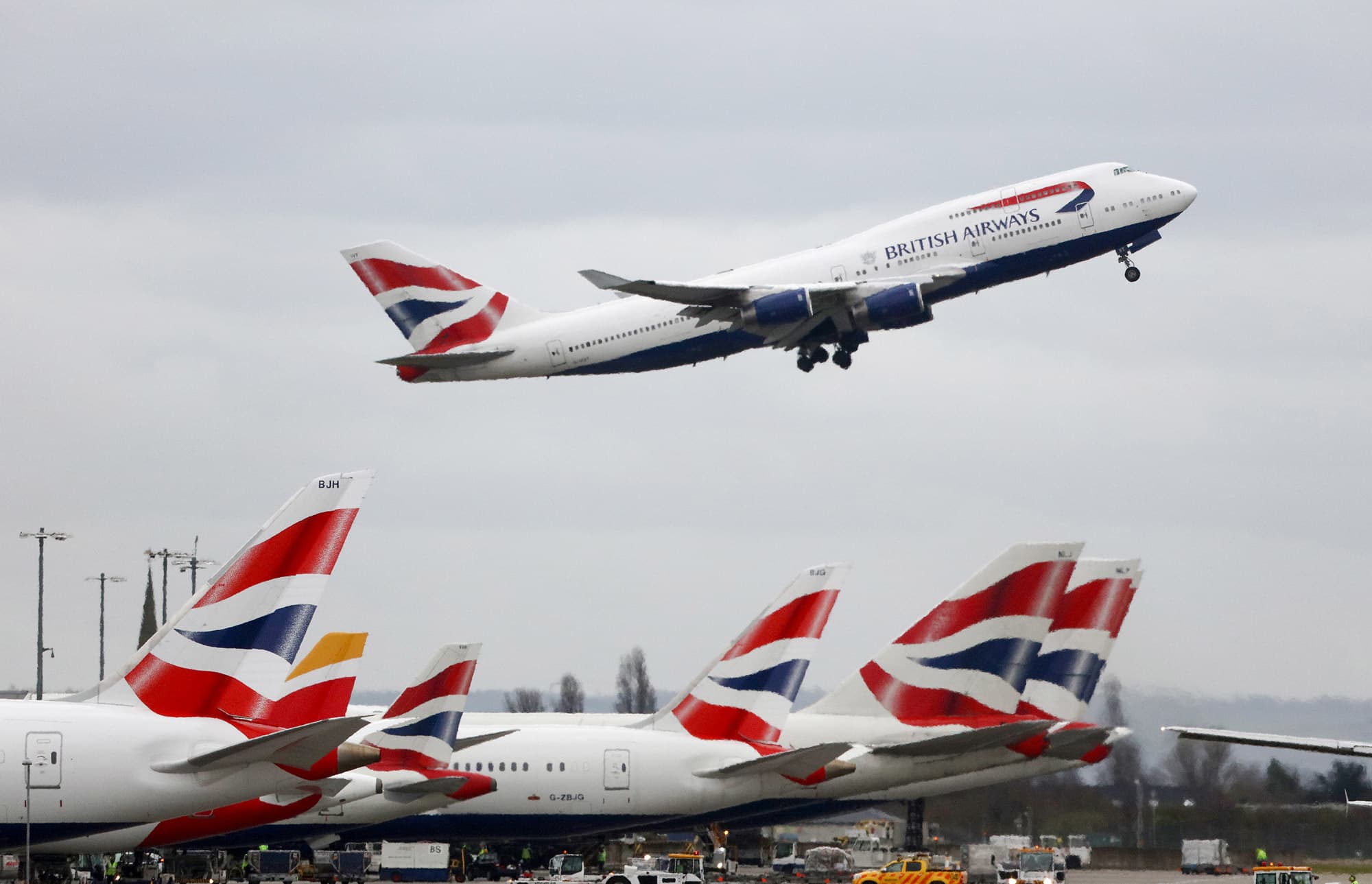Airlines slam proposals to ban air mile programs and tax frequent flyers

A Boeing Co. 747 passenger aircraft, operated by British Airways, takes at Heathrow airport in London, U.K.
Chris Ratcliffe | Bloomberg | Getty Images
Airlines operating in the U.K. have dismissed a report that called for air miles programs to be banned and additional taxes applied to frequent flyers.
In a report published Thursday by Imperial College London for the Committee on Climate Change (CCC), academics proposed several measures that governments should implement to reduce the impact aviation was having on the environment.
The CCC is an independent body that advises the U.K. government on how to build a low carbon economy.
"Flying is a uniquely high-impact activity and is the quickest and cheapest way for a consumer to increase their carbon footprint," the report's authors said before adding, "Low-carbon aviation technology is expected to remain technically unfeasible and so it is vital to restrain rising demand."
Among recommendations was a call for the U.K. government to "introduce a ban on air miles and frequent flyer loyalty schemes that incentivise excessive flying."
The report also urged lawmakers to introduce a levy targeting frequent flyers, noting that an estimated 15% of the British population took 70% of the country's flights. The level of tax would correspond to air miles traveled over a three-year period, as opposed to the number of flights taken.
According to the report, the proposed frequent flyer levy would discourage leisure travelers from booking "much more damaging long-haul flights." Travel for work would not count towards the frequent flyer tax, researchers said.
Industry backlash
Speaking to CNBC on the phone on Tuesday, a spokesperson for the U.K.'s Board of Airline Representatives — an industry body representing most of the airlines operating in Britain — said there was "not really any rationale" for the report's recommendations to be implemented.
"This is a drop in the ocean as to what can be done by the government," they said.
Meanwhile, in an emailed statement, a spokesperson for trade body Airlines U.K., whose members include British Airways, Ryanair and Virgin Atlantic, said the proposals would cause economic and reputational harm.
"U.K. aviation has a robust plan to cut aviation carbon emissions and get to net zero by 2050 without the need to price people out of air travel or put the U.K. at a competitive disadvantage," they told CNBC on Tuesday.
"We should be focusing on the huge potential for the U.K. to become a world leader in new innovation and the many exciting developments around aircraft and engine technology, sustainable aviation fuels and the new emerging carbon markets. Working with government we can achieve this together without resorting to the kind of unilateral, demand side measures that will damage the U.K.'s reputation internationally and potentially lead to carbon leakage."
The CCC report claimed that the proposed tax would not impact ticket prices for most flyers.
"An Air Miles Levy which escalates with the air miles travelled by an individual within a three year accounting period could provide strong price signals to curb some demand by less price-sensitive frequent flyers, encourage shifting from long-haul to short-haul destinations and fund research into low-carbon aviation technology, while sparing the large majority of travellers any extra cost," it said.
The authors also suggested that the levy should take into account the higher emissions attached to business and first class tickets, alleging that more spacious cabins and unfilled seats meant emissions for first class tickets can have seven times the emissions of an economy ticket.
Advertising overhaul
An overhaul of the way vacations and flights were marketed was also recommended, with the report's authors backing the introduction of regulations similar to those used for tobacco and gambling ads.
"More responsible flying could be encouraged by new regulations for the marketing and promotion of flights and holiday destinations, requiring that carbon footprints of flights are stated in the advertising material," they said.
According to research from the World Economic Forum (WEF), airlines would be one of the world's top 10 greenhouse gas emitters if the industry was a country, with aviation responsible for around 2% of global CO2 emissions.
Many airlines, including Air New Zealand, United Airlines and Air Canada, offer flyers the opportunity to offset the carbon emissions generated by their flights. Others, such as the Netherlands' KLM, actively encourage travellers to consider alternatives to flying.
Read More
No comments